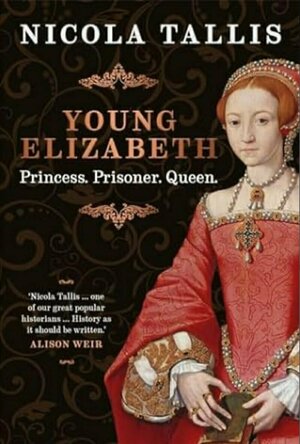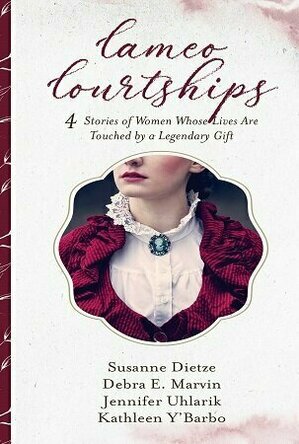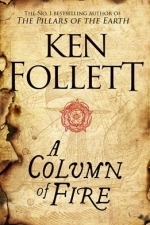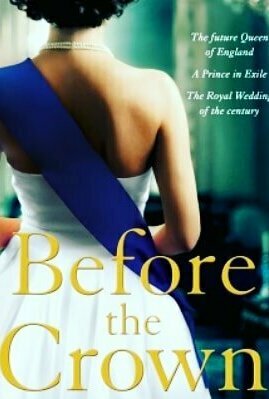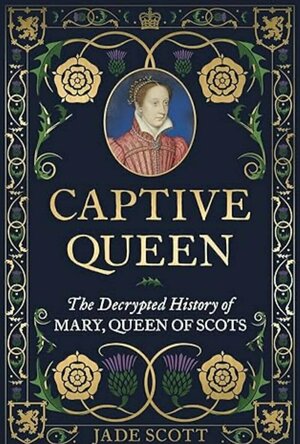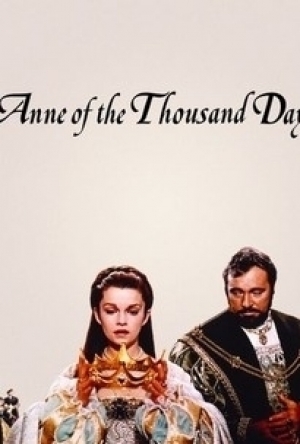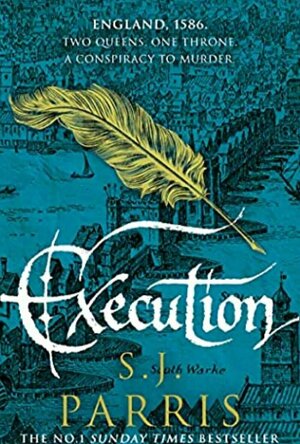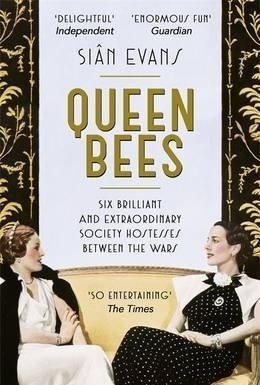Search
Search results
graveyardgremlin (7194 KP) rated The Twylight Tower (Elizabeth I, #3) in Books
Feb 15, 2019
I had a very hard time getting through this book. First of all, Elizabeth annoyed the heck out of me. She was very wishy-washy; either she was b!tchy or she was on the verge of tears. Seriously, she's a queen and she needed to be somewhere in the middle most of the time, not at two extremes all the time. Secondly, the relationship between Elizabeth and Robert Dudley didn't add anything to the story and I'd rather there were less of it. I know that there is truth to the relationship, but the way it is written in this book, it doesn't make for a good read. Three, the whole book was rather boring. The characters I had liked in the previous two were hardly in this entry much, and the author made Meg do some stupid things. I think I'd like the whole concept of the book if it had been written in someone else's eyes instead of the focus being through the Queen's eyes. Most especially if it were either William Cecil or the fictional Meg, because there would be more of a leeway of how to write Elizabeth and it would be from a distance. Fourth on my list... The same tired old plot is rather redundant. Someone's in a conspiracy to knock Elizabeth off the throne. *yawn* Couldn't there be a normal murder or mystery instead? It's already been used to death (no pun intended) in just three books! Of course the Queen wouldn't be interested because it has nothing to do with her, therefore every book in the series must be about offing her! Ugh-and-a-half!
I really don't know if I'll pick up the fourth in the series or just drop it. I would like to know what happens with Meg, but I'll have to think about it.
2 stars
I really don't know if I'll pick up the fourth in the series or just drop it. I would like to know what happens with Meg, but I'll have to think about it.
2 stars
ClareR (6059 KP) rated Young Elizabeth: Princess. Prisoner. Queen in Books
Jun 3, 2024
Young Elizabeth: Princess. Prisoner. Queen by Nicola Tallis is such an interesting non-fiction account of Elizabeth’s life: from her mother, Anne Boleyn meeting Henry VIII, to the day she succeeds to the throne. In those intervening years, Elizabeth is pronounced a bastard after the execution of her mother, is predated on by her stepmothers husband, is accused of trying to topple her sister Mary from the throne, is imprisoned in the Tower and other great houses - as long as she is out of Mary’s way. She is spied on and may well have really been involved in plots against her sister.
Elizabeth was far too clever to be caught, and that comes across really clearly. She was her parent’s daughter: clever, resilient and she knew the best people to have around her. These personality traits and the things that happened to her, formed the young woman and queen she would later be.
Nicola Tallis read through, and included, a lot of Elizabeth’s personal correspondence. It must have been exhausting for Elizabeth. She was constantly under suspicion of treason. She may well have been though, and she certainly didn’t conform wholeheartedly to Catholicism as Mary wanted her to.
This was such a fascinating read - and I’m notoriously picky with non-fiction. I often find it dry and hard to concentrate on, but not with Young Elizabeth. It was riveting, and held my attention from start to finish!
Elizabeth was far too clever to be caught, and that comes across really clearly. She was her parent’s daughter: clever, resilient and she knew the best people to have around her. These personality traits and the things that happened to her, formed the young woman and queen she would later be.
Nicola Tallis read through, and included, a lot of Elizabeth’s personal correspondence. It must have been exhausting for Elizabeth. She was constantly under suspicion of treason. She may well have been though, and she certainly didn’t conform wholeheartedly to Catholicism as Mary wanted her to.
This was such a fascinating read - and I’m notoriously picky with non-fiction. I often find it dry and hard to concentrate on, but not with Young Elizabeth. It was riveting, and held my attention from start to finish!
What a cute set of stories!
This collection of stories about a Cameo passed down by Queen Elizabeth herself was so fun!
It was cool to imagine that actually happening, and then to see how the characters acted through their stories was remarkable. Truly a great retelling of a legend in a family tree. Two of these authors were previously unknown to me and now I can't wait to research them and see what other books they have written.
I would definitely recommend reading this book. This is not the first collection by Barbour Publishing that I have read but I will say to date that it is probably my favorite.
I volunteered to read this book from Barbour Publishing in exchange for my honest feedback, the thoughts and opinions expressed within are my own.
This collection of stories about a Cameo passed down by Queen Elizabeth herself was so fun!
It was cool to imagine that actually happening, and then to see how the characters acted through their stories was remarkable. Truly a great retelling of a legend in a family tree. Two of these authors were previously unknown to me and now I can't wait to research them and see what other books they have written.
I would definitely recommend reading this book. This is not the first collection by Barbour Publishing that I have read but I will say to date that it is probably my favorite.
I volunteered to read this book from Barbour Publishing in exchange for my honest feedback, the thoughts and opinions expressed within are my own.
Lyndsey Gollogly (2893 KP) rated A Column of Fire in Books
Aug 6, 2020
127 of 200
Book
A column of fire ( Kingsbridge 3)
By Ken Follet
Christmas 1558, and young Ned Willard returns home to Kingsbridge to find his world has changed.
The ancient stones of Kingsbridge Cathedral look down on a city torn by religious hatred. Europe is in turmoil as high principles clash bloodily with friendship, loyalty and love, and Ned soon finds himself on the opposite side from the girl he longs to marry, Margery Fitzgerald.
Then Elizabeth Tudor becomes queen and all of Europe turns against England. The shrewd, determined young monarch sets up the country's first secret service to give her early warning of assassination plots, rebellions and invasion plans.
Elizabeth knows that alluring, headstrong Mary Queen of Scots lies in wait in Paris. Part of a brutally ambitious French family, Mary has been proclaimed the rightful ruler of England, with her own supporters scheming to get rid of the new queen.
Over a turbulent half-century, the love between Ned and Margery seems doomed, as extremism sparks violence from Edinburgh to Geneva. With Elizabeth clinging precariously to her throne and her principles, protected by a small, dedicated group of resourceful spies and courageous secret agents, it becomes clear that the real enemies - then as now - are not the rival religions.
The true battle pitches those who believe in tolerance and compromise against the tyrants who would impose their ideas on everyone else - no matter the cost.
Ken Follet and this series has completely stolen my heart I love these books! I’m a huge fan of historical based fiction and I think he just does it so well!! I did find some parts were a little rushed but it was still an amazing book. The characters were as usual full of life, I have loved and hated them he has a way of hooking you into these peoples lives. If I had one issue it was this one spent a lot of time away from kingsbridge I think the characters weren’t as linked to the city as they were in other books! I’m looking forward to to the new kingsbridge book!
Book
A column of fire ( Kingsbridge 3)
By Ken Follet
Christmas 1558, and young Ned Willard returns home to Kingsbridge to find his world has changed.
The ancient stones of Kingsbridge Cathedral look down on a city torn by religious hatred. Europe is in turmoil as high principles clash bloodily with friendship, loyalty and love, and Ned soon finds himself on the opposite side from the girl he longs to marry, Margery Fitzgerald.
Then Elizabeth Tudor becomes queen and all of Europe turns against England. The shrewd, determined young monarch sets up the country's first secret service to give her early warning of assassination plots, rebellions and invasion plans.
Elizabeth knows that alluring, headstrong Mary Queen of Scots lies in wait in Paris. Part of a brutally ambitious French family, Mary has been proclaimed the rightful ruler of England, with her own supporters scheming to get rid of the new queen.
Over a turbulent half-century, the love between Ned and Margery seems doomed, as extremism sparks violence from Edinburgh to Geneva. With Elizabeth clinging precariously to her throne and her principles, protected by a small, dedicated group of resourceful spies and courageous secret agents, it becomes clear that the real enemies - then as now - are not the rival religions.
The true battle pitches those who believe in tolerance and compromise against the tyrants who would impose their ideas on everyone else - no matter the cost.
Ken Follet and this series has completely stolen my heart I love these books! I’m a huge fan of historical based fiction and I think he just does it so well!! I did find some parts were a little rushed but it was still an amazing book. The characters were as usual full of life, I have loved and hated them he has a way of hooking you into these peoples lives. If I had one issue it was this one spent a lot of time away from kingsbridge I think the characters weren’t as linked to the city as they were in other books! I’m looking forward to to the new kingsbridge book!
Lottie disney bookworm (1056 KP) rated Before the Crown in Books
Jun 14, 2020
Thank you to Netgalley and Flora Harding for giving me the opportunity to read an advanced copy of this novel in exchange for an honest review.
Before the Crown is a beautiful historical novel which delves deep into the romance between Princess Elizabeth and Prince Philip of Greece, perhaps better known as Queen Elizabeth II and the Duke of Edinburgh.
However, this is not a traditional romance and Harding does not hold back in laying out all the struggles Elizabeth and Philip faced. From the King and Queen's disapproval of the match for their daughter to the effects of public opinion on the relationship, Flora Harding covers it all.
Nor does this novel present the engagement as all hearts and flowers. Despite Elizabeth being attracted to Philip from a young age, this is initially a one-sided crush and a political arrangement for the couple. However, due to Flora Harding presenting her novel from the perspective of both Elizabeth and Philip, the reader is able to experience first hand the doubts, worries, longing and evolution of this infamous relationship.
I will be honest it is hard not to envision the Netflix series when you read this novel but it is by no means a copy cat situation. Harding provides such interesting insights into Philip's lifestyle and his family that it is hard not to pity the sacrifices that he makes in order to be with Elizabeth.
In 'The Crown' young Philip was a bit of a dirt bag and, although Harding's Prince is no angel, he is clearly fighting an uphill battle against the aristocracy's view of him. It is difficult not to sympathise.
I would have liked an author's note to know how much of the story is fact and how much is fiction or speculation. However, given the privacy of the Royal Family I imagine any factual insights are rare.
In summary, 'Before the Crown' is a captivating read, exploring the sacrifices and struggles where we often blindly see prejudice, all against the backdrop of WWII Europe.
Before the Crown is a beautiful historical novel which delves deep into the romance between Princess Elizabeth and Prince Philip of Greece, perhaps better known as Queen Elizabeth II and the Duke of Edinburgh.
However, this is not a traditional romance and Harding does not hold back in laying out all the struggles Elizabeth and Philip faced. From the King and Queen's disapproval of the match for their daughter to the effects of public opinion on the relationship, Flora Harding covers it all.
Nor does this novel present the engagement as all hearts and flowers. Despite Elizabeth being attracted to Philip from a young age, this is initially a one-sided crush and a political arrangement for the couple. However, due to Flora Harding presenting her novel from the perspective of both Elizabeth and Philip, the reader is able to experience first hand the doubts, worries, longing and evolution of this infamous relationship.
I will be honest it is hard not to envision the Netflix series when you read this novel but it is by no means a copy cat situation. Harding provides such interesting insights into Philip's lifestyle and his family that it is hard not to pity the sacrifices that he makes in order to be with Elizabeth.
In 'The Crown' young Philip was a bit of a dirt bag and, although Harding's Prince is no angel, he is clearly fighting an uphill battle against the aristocracy's view of him. It is difficult not to sympathise.
I would have liked an author's note to know how much of the story is fact and how much is fiction or speculation. However, given the privacy of the Royal Family I imagine any factual insights are rare.
In summary, 'Before the Crown' is a captivating read, exploring the sacrifices and struggles where we often blindly see prejudice, all against the backdrop of WWII Europe.
ClareR (6059 KP) rated Captive Queen: The Decrypted History of Mary Queen of Scots in Books
Jun 14, 2025
Tudor England has always been a favourite subject of mine, and then on to the Elizabethan period as well. It’s always interested me how Elizabeth I treated her cousin, Mary Queen of Scots, especially after I visited Carlisle Castle and saw some of the displays that explained her captivity there. It may have only been a few weeks out of the 19 years that she was held captive, and I was curious about the rest of those years.
Captive Queen explains a lot of Mary’s life and also tells of how she got to the point of her imprisonment. So much information was gleaned from the encrypted letters that she sent to, and received from, her supporters. When they were decrypted, after their discovery in a French archive, they answered a lot of questions.
Jade Scott uses this information to paint a really interesting picture of Mary’s captivity, and just how involved she was in the various plots to release her and put her on the English throne. I mean, who can blame her?! She was imprisoned in some awful places - regardless of the fact that she was in castles or stately homes.
I rather enjoyed the little fictional chapter headers. They made it feel more personal, and ideal for people like me who don’t always enjoy dry, academic historical writing. This is absolutely not that - I whizzed through this book, thoroughly enjoying it.
So, if you enjoy history and want to find out more about Mary, Queen of Scots, you may well enjoy this too.
Captive Queen explains a lot of Mary’s life and also tells of how she got to the point of her imprisonment. So much information was gleaned from the encrypted letters that she sent to, and received from, her supporters. When they were decrypted, after their discovery in a French archive, they answered a lot of questions.
Jade Scott uses this information to paint a really interesting picture of Mary’s captivity, and just how involved she was in the various plots to release her and put her on the English throne. I mean, who can blame her?! She was imprisoned in some awful places - regardless of the fact that she was in castles or stately homes.
I rather enjoyed the little fictional chapter headers. They made it feel more personal, and ideal for people like me who don’t always enjoy dry, academic historical writing. This is absolutely not that - I whizzed through this book, thoroughly enjoying it.
So, if you enjoy history and want to find out more about Mary, Queen of Scots, you may well enjoy this too.
Sasha (36 KP) rated Anne of the Thousand Days (1969) in Movies
Jan 19, 2018
Love Love Love it!
Okay so personally I am obsessed with Anne Boylyn and the Tudors period. I have numerous books on the subject and always look for more I can find out on the topic. So naturally this movie came as a treat. For a person who doesn’t watch many older movies it took me couple of minutes to get used to the quality but soon enough I got sucked in.
Both of the actors do an amazing job of portraying the characters and there are many turning points in the movie to keep the viewer entertained. For example my heart broke for Anne after she give birth to Elizabeth and Hendry acted like she just committed the worst crime in the worst. I suppose in his eyes she did, his drive for a son was obvious from the beginning and it’s not like she didn’t promise him one before she became queen.
The movie is definitely worth watching :)
Both of the actors do an amazing job of portraying the characters and there are many turning points in the movie to keep the viewer entertained. For example my heart broke for Anne after she give birth to Elizabeth and Hendry acted like she just committed the worst crime in the worst. I suppose in his eyes she did, his drive for a son was obvious from the beginning and it’s not like she didn’t promise him one before she became queen.
The movie is definitely worth watching :)
Lyndsey Gollogly (2893 KP) rated The Lady of the Ravens in Books
Oct 18, 2022
191 of 230
Book
The Lady of the Ravens ( Queens of the Tower book 1)
By Joanna Hickson
⭐️⭐️⭐️
Elizabeth of York, her life already tainted by dishonour and tragedy, now queen to the first Tudor king, Henry the VII.
Joan Vaux, servant of the court, straining against marriage and motherhood and privy to the deepest and darkest secrets of her queen. Like the ravens, Joan must use her eyes and her senses, as conspiracy whispers through the dark corridors of the Tower.
Through Joan’s eyes, The Lady of the Ravens inhabits the squalid streets of Tudor London, the imposing walls of its most fearsome fortress and the glamorous court of a kingdom in crisis.
It was good. I enjoyed it but got slightly bored towards the end. I’m a huge fan of the Tudors and liked reading this adaptation of the start of their reign. It was a decent read.
Book
The Lady of the Ravens ( Queens of the Tower book 1)
By Joanna Hickson
⭐️⭐️⭐️
Elizabeth of York, her life already tainted by dishonour and tragedy, now queen to the first Tudor king, Henry the VII.
Joan Vaux, servant of the court, straining against marriage and motherhood and privy to the deepest and darkest secrets of her queen. Like the ravens, Joan must use her eyes and her senses, as conspiracy whispers through the dark corridors of the Tower.
Through Joan’s eyes, The Lady of the Ravens inhabits the squalid streets of Tudor London, the imposing walls of its most fearsome fortress and the glamorous court of a kingdom in crisis.
It was good. I enjoyed it but got slightly bored towards the end. I’m a huge fan of the Tudors and liked reading this adaptation of the start of their reign. It was a decent read.
Execution is the sixth book set in Elizabethan world of Giordano Bruno. I have read the first book in this series, so it was definitely on my radar, but as so often happens with me, I got distracted by other books 🤯
The fact that I haven’t (yet) read books 2-5 has made no difference at all to my great reading enjoyment, so this can be read as a one off (but why would you do that? Books 1 and 6 are fab, so I’ll be reading books 2-5 without a doubt).
Bruno is working undercover for Elizabeth I’s spymaster, Francis Walsingham, and they hope to stop what becomes known as The Babington Plot - a plot to kill Elizabeth I, break Mary Queen of Scots out of prison and put her on England’s throne instead. This is all about Elizabeth’s claim to be queen. Henry VIII has disowned her as illegitimate when Anne was beheaded, and she was a Protestant to boot! Babington and his crew are staunch catholics, and they want a catholic on the throne. Mary fits the bill.
Francis Walsingham is desperate to find an excuse to dispose of Mary, and Babington is providing the goods. There is a secret letter exchange going on between the plotters and that Walsingham knows about, but he needs to catch them in the act - and he needs to ensure that Mary implicates herself completely.
This is all historical fact, as is Bruno’s existence, and I think that’s what puts the icing on the cake for me. I love historical fiction that brings real characters to life on the page. Bruno is a great character - he’s intelligent, funny and emotional. Basically, he’s a great character to build a story around.
So much research must have gone in to this book, and I really appreciate that. The side characters add couloir and substance to the whole story.
Many thanks to The Pigeonhole for serialising this book, and I’ve now given myself the rather enjoyable task of catching up with Bruno!
The fact that I haven’t (yet) read books 2-5 has made no difference at all to my great reading enjoyment, so this can be read as a one off (but why would you do that? Books 1 and 6 are fab, so I’ll be reading books 2-5 without a doubt).
Bruno is working undercover for Elizabeth I’s spymaster, Francis Walsingham, and they hope to stop what becomes known as The Babington Plot - a plot to kill Elizabeth I, break Mary Queen of Scots out of prison and put her on England’s throne instead. This is all about Elizabeth’s claim to be queen. Henry VIII has disowned her as illegitimate when Anne was beheaded, and she was a Protestant to boot! Babington and his crew are staunch catholics, and they want a catholic on the throne. Mary fits the bill.
Francis Walsingham is desperate to find an excuse to dispose of Mary, and Babington is providing the goods. There is a secret letter exchange going on between the plotters and that Walsingham knows about, but he needs to catch them in the act - and he needs to ensure that Mary implicates herself completely.
This is all historical fact, as is Bruno’s existence, and I think that’s what puts the icing on the cake for me. I love historical fiction that brings real characters to life on the page. Bruno is a great character - he’s intelligent, funny and emotional. Basically, he’s a great character to build a story around.
So much research must have gone in to this book, and I really appreciate that. The side characters add couloir and substance to the whole story.
Many thanks to The Pigeonhole for serialising this book, and I’ve now given myself the rather enjoyable task of catching up with Bruno!
<i>I received this book for free through Goodreads First Reads.</i>
A spectacle of celebrity, talent and burning ambition, <i>Queen Bees</i> combines the biographical stories of six ambitious women who helped to shape the standards of British society between the two world wars. Londoner Siân Evans is a cultural historian who has previously worked with the <i>Victoria and Albert Museum, National Trust </i>and <i>Design Museum</i>, and takes great lengths to thoroughly research into her written subject in order to portray a highly accurate insight to the lives of historical figures. Due to the non-existent political status of women in the early 1900s, the women featured in this book are virtually unknown today, yet they had a great impact during the 20s and 30s and helped to shape the Britain of today.
Although not necessarily born into it, circumstances such as marriage meant these six women were regarded as upper class. In no particular order, the names impacting on the social revolution and thus featured in <i>Queen Bees</i> are as follows: Lady Nancy Astor, the first female MP; Lady Sybil Colefax, who became a friend of Edward VIII; Lady Emerald Cunard, also connected with the royal family; Mrs. Ronnie Greville, a rather formidable woman; Lady Edith Londonderry, the founder of the Women’s Legion; and Laura Corrigan, the youngest of the set. Evans talks the reader through these women’s careers as professional hostesses as they compete to throw the better party, entertaining famous writers and actors as well as members of royalty, both national and foreign.
What is perhaps the most interesting, and indeed the most worth learning, is the way a couple of these women altered the future of the British monarchy. Without their interference the future George VI would never have married Elizabeth Bowes-Lyon, and without their involvement in the relationship between Edward VIII and Wallis Simpson, George VI would never have come to the throne. This is such an important aspect of British history that has been widely left out and ignored. Without these hostesses influence we would all be experiencing a slightly different life.
In terms of the actual writing, Siân Evans manages fairly well to engage the reader as she relates the factual story in a more or less chronological way. A slight issue is the quick, often undetected, move from one woman to the next, resulting in a lot of confusion about who is who particularly at the beginning of the book. A lot of the narrative features other key figures from the same period and often moves away from the main characters, which, whilst interesting, is not what the reader necessarily expected from a book whose title <i>Queen Bees</i> suggested it was only going to be about the women’s lives.
Footnotes, quotes and extracts from letters and diaries help to make the book appear reliable, factual and believable. Some of the content, without back up, would have seemed rather fanciful or exaggerated. <i>Queen Bees</i> can be read as a source of entertainment or as a citation for historical research. What is found within these pages is a more unbiased account of the early twentieth century than would be found in numerous male dominated history textbooks.
Mature readers of all ages are likely to gain something from reading <i>Queen Bees</i> – pleasure, knowledge etc., however it is most likely to appeal to the contemporary feminist. With this in mind, be aware that the six hostesses were not feminists of their time; they were not involved in Suffragette movements and were fairly content to live off money earned by their husbands or fathers. Yet, on the other hand, they impacted on the future of Britain as much as the male politicians of the time. Highly political in content, <i>Queen Bees </i>is worth reading to discover our own history, but be prepared for initial confusion over who is who and rather lengthy paragraphs.
A spectacle of celebrity, talent and burning ambition, <i>Queen Bees</i> combines the biographical stories of six ambitious women who helped to shape the standards of British society between the two world wars. Londoner Siân Evans is a cultural historian who has previously worked with the <i>Victoria and Albert Museum, National Trust </i>and <i>Design Museum</i>, and takes great lengths to thoroughly research into her written subject in order to portray a highly accurate insight to the lives of historical figures. Due to the non-existent political status of women in the early 1900s, the women featured in this book are virtually unknown today, yet they had a great impact during the 20s and 30s and helped to shape the Britain of today.
Although not necessarily born into it, circumstances such as marriage meant these six women were regarded as upper class. In no particular order, the names impacting on the social revolution and thus featured in <i>Queen Bees</i> are as follows: Lady Nancy Astor, the first female MP; Lady Sybil Colefax, who became a friend of Edward VIII; Lady Emerald Cunard, also connected with the royal family; Mrs. Ronnie Greville, a rather formidable woman; Lady Edith Londonderry, the founder of the Women’s Legion; and Laura Corrigan, the youngest of the set. Evans talks the reader through these women’s careers as professional hostesses as they compete to throw the better party, entertaining famous writers and actors as well as members of royalty, both national and foreign.
What is perhaps the most interesting, and indeed the most worth learning, is the way a couple of these women altered the future of the British monarchy. Without their interference the future George VI would never have married Elizabeth Bowes-Lyon, and without their involvement in the relationship between Edward VIII and Wallis Simpson, George VI would never have come to the throne. This is such an important aspect of British history that has been widely left out and ignored. Without these hostesses influence we would all be experiencing a slightly different life.
In terms of the actual writing, Siân Evans manages fairly well to engage the reader as she relates the factual story in a more or less chronological way. A slight issue is the quick, often undetected, move from one woman to the next, resulting in a lot of confusion about who is who particularly at the beginning of the book. A lot of the narrative features other key figures from the same period and often moves away from the main characters, which, whilst interesting, is not what the reader necessarily expected from a book whose title <i>Queen Bees</i> suggested it was only going to be about the women’s lives.
Footnotes, quotes and extracts from letters and diaries help to make the book appear reliable, factual and believable. Some of the content, without back up, would have seemed rather fanciful or exaggerated. <i>Queen Bees</i> can be read as a source of entertainment or as a citation for historical research. What is found within these pages is a more unbiased account of the early twentieth century than would be found in numerous male dominated history textbooks.
Mature readers of all ages are likely to gain something from reading <i>Queen Bees</i> – pleasure, knowledge etc., however it is most likely to appeal to the contemporary feminist. With this in mind, be aware that the six hostesses were not feminists of their time; they were not involved in Suffragette movements and were fairly content to live off money earned by their husbands or fathers. Yet, on the other hand, they impacted on the future of Britain as much as the male politicians of the time. Highly political in content, <i>Queen Bees </i>is worth reading to discover our own history, but be prepared for initial confusion over who is who and rather lengthy paragraphs.

